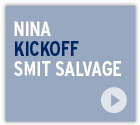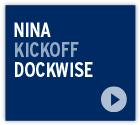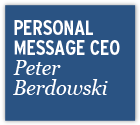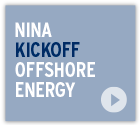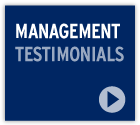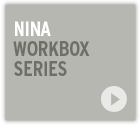NINA at Work articles
- Number 2 / 2024
- Number 1 / 2024
- Number 2 / 2023
- Number 1 / 2023
- Number 3 / 2022
- Number 2 / 2022
- Number 1 / 2022
- Number 3 / 2021
- Number 2 / 2021
- Number 1 / 2021
- Number 1 / 2020
- Number 4 / 2019
- Number 3 / 2019
- Number 2 / 2019
- Number 1 / 2019
- Number 4 / 2018
- Number 3 / 2018
- Number 2 / 2018
- Number 1 / 2018
- Number 6 / 2017
- Special edition / 2017
- Number 4 / 2017
- Number 3 / 2017
- Number 2 / 2017
- Number 1 / 2017
Media Library
TestimonialVideosNews Items
"It takes time and effort to guide people and to implement the NINA culture."
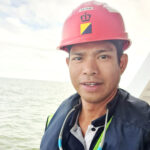 Benedict (Ben) Arribas, HSS Engineer, has worked for Boskalis since 2014 and has been involved in the MIA project from its inception in 2021. As a Safety Engineer, he has worked successively in the disciplines of Dredging Sand Supply, Dry Earth Movement and Soil improvement package, and is now part of the Marine Fleet Safety Support Team. "As a Filipino, I find it very special to work on such a dynamic project with great challenges and to make other Filipino colleagues part of the NINA program."
Benedict (Ben) Arribas, HSS Engineer, has worked for Boskalis since 2014 and has been involved in the MIA project from its inception in 2021. As a Safety Engineer, he has worked successively in the disciplines of Dredging Sand Supply, Dry Earth Movement and Soil improvement package, and is now part of the Marine Fleet Safety Support Team. "As a Filipino, I find it very special to work on such a dynamic project with great challenges and to make other Filipino colleagues part of the NINA program."
'Teacher and student' culture
Ben has a lot of experience working with expats, but that is not true for everyone working on this project. "Cultural differences are a big challenge. As Filipinos, we are used to a 'teacher and student' culture. The teacher tells you what to do and then you follow. It remembers me of the early stages of my career during my safety officer traineeship at a different dredging company. At first, I hesitated to speak up and share my thoughts on safety matters. I felt intimidated by the seniority and perceived expertise of those around me. I thought it was my duty to unquestioningly follow instructions, much like a diligent student pleasing their teachers. One of the important lessons I've learned is that compromising safety for the sake of keeping others happy is not an option."
Ben explains that this is part of the history of the Philippines and is passed down from generation to generation. You can still see it in the workplace as a result. "Local workers see the foreign experts as the top of the hierarchy and are used to saying 'yes' or 'okay,' even if they don't understand. They are reluctant to speak up." Sharing knowledge and examples about safety as well as the scope of work is important but interacting and listening to each other is crucial. "Our role here is to be a mentor, coach and educator. It takes time and effort to guide people and to implement the NINA culture."
Ben shares many stories from his own experiences with local workers, like the situation with a worker in the early stage of the land platform operation that feld being just a ‘number’ when it came to addressing safety concerns or taking action. "I asked if he had tried to communicate his worries with his supervisors or superintendent, but he hadn't. He believed his voice wouldn't be heard. It was during the TOFS ("Time Out For Safety") session, which involved all the packages and was led by Package Managers, Works Managers, and the HSS team, that a significant change occurred. The same worker approached me once more, his demeanor transformed. He shared that they were receiving feedback on their concerns and that they felt heard by both the project operation and the HSS team. This shift in dynamics made them feel like valued members of the team, contributing to a project that would go down in history in the Philippines."
Ben fully understands that it is difficult for them to speak up to experts or higher superiors. "It takes time to get used to that." Ben explains to them that contact can be established even by having little conversations. "It took me years before I had the confidence to talk to someone regardless of rank or position. You have to practice."
Inspiring others
"The good thing is that you can see that something is happening." Whereas pre-start meetings, toolbox talks and presentations used to be completed in a short amount of time, they now take much longer. Local workers are now speaking up and voicing their concerns. "We discuss all issues together and come back to them as management with feedback. I see an increasing sense of: 'I'm part of this and important for the company, I feel my voice is heard'."
"One of the big advantages for me is that I can speak to them in the local dialects." Ben experiences being seen by local workers not as a regular officer, but as a Filipino Safety Engineer working with expats and inspiring others. "After the Workbox Hands, I was approached by one of the participants asking 'Can I take a picture with you? I will send it to my son that you are working here as a Safety Engineer. My son is studying to be an engineer, so I can show him that anybody can be on this level'. At that moment I inspired them and was able to connect safety to both their work and personal lives. Our goal here is to inform the local employees about the NINA culture. Not just during the work on the project, but also after. They can bring this culture home."
Not fit for duty resulting in a collision
At the time Ben was looking after the Dry Earth Movement, a collision occurred between two dump trucks. This accident happened in the last 20 minutes of the night shift. "They were about to finish the night shift." The dump trucks drove behind each other, with the distance between them initially being about 8 to 10 meters. At the next intersection, the rear truck began to tailgate. "During the hours before the accident, the driver was feeling sleepy already." The night shift was almost over; despite his fatigue, the driver continued to drive for a while. When the first dump truck suddenly had to slow down, the driver of the second truck was momentarily snoozing. "He’d just closed his eyes for a second. When he opened his eyes, he only had one or two meters between him and the dump truck in front of him. He slammed on the brakes, but it was too late. The first thing he asked us after the collision: 'Am I going home?'"
According to Ben, the best way was to involve the drivers and inform them why research was being conducted. "We told them that we are looking for the root cause and that we are doing this to prevent such an accident from happening again." The driver has now done a toolbox presentation on this and shared his own experiences. "He provided us with information about the underlying problem. That he should have told his superintendent that he was feeling tired, but that he didn't speak up because there were only 20 minutes left and he felt he should finish his job. Now the driver realizes it is better to speak up. He should not be ashamed of what happened, but he can prevent it from happening again by sharing his experiences. That you must speak up about safety concerns because it might cost you your life or that of someone else."
